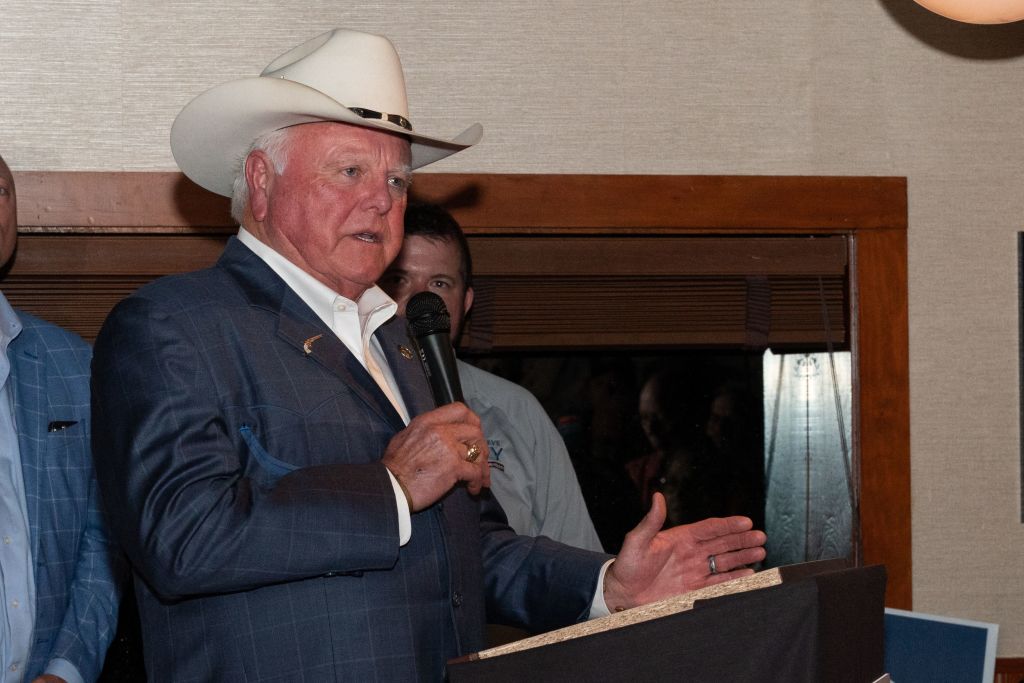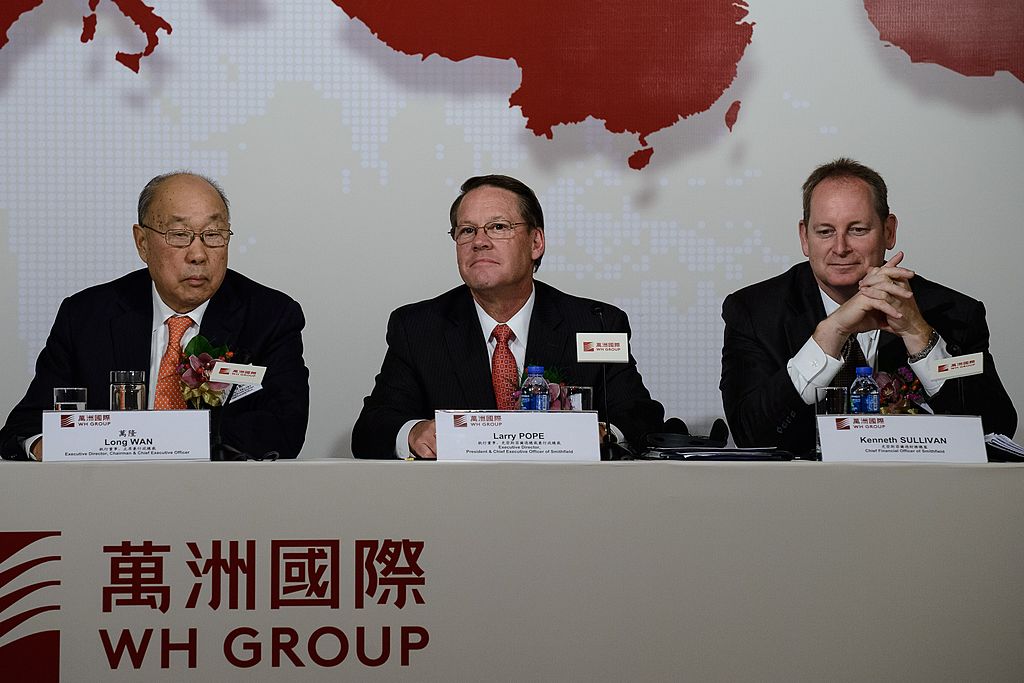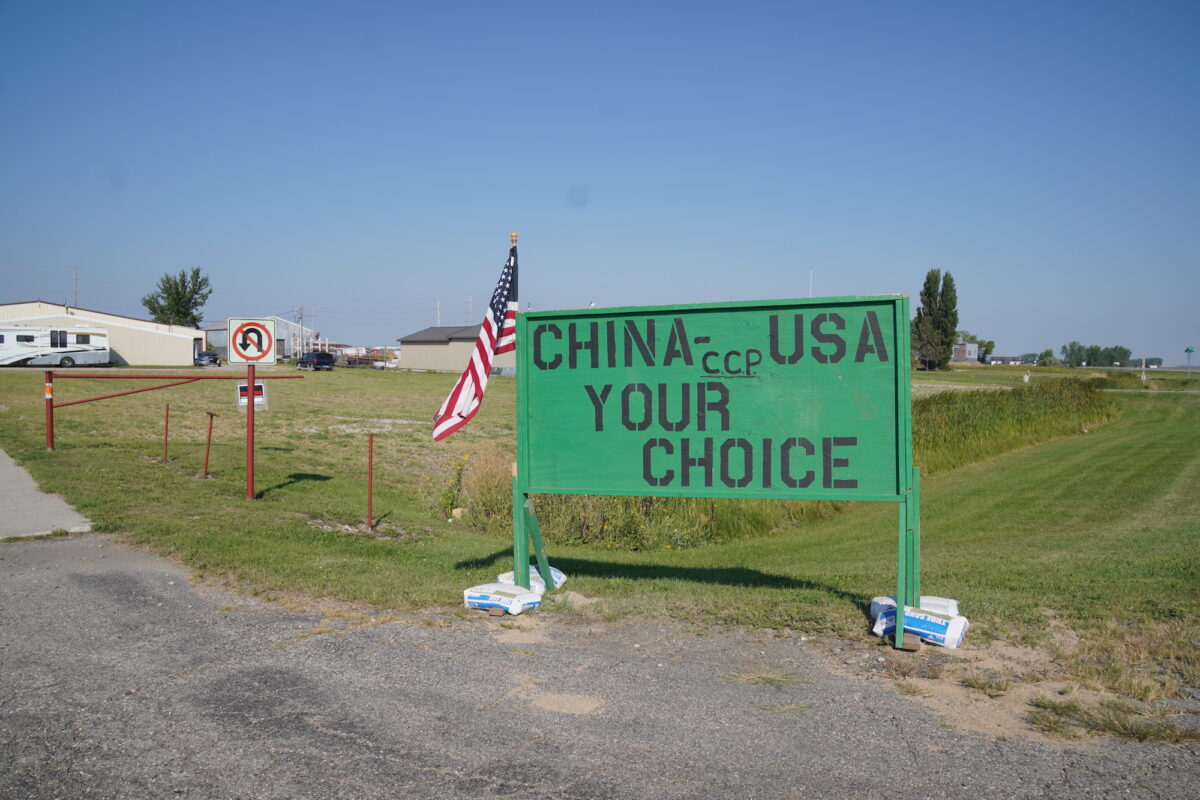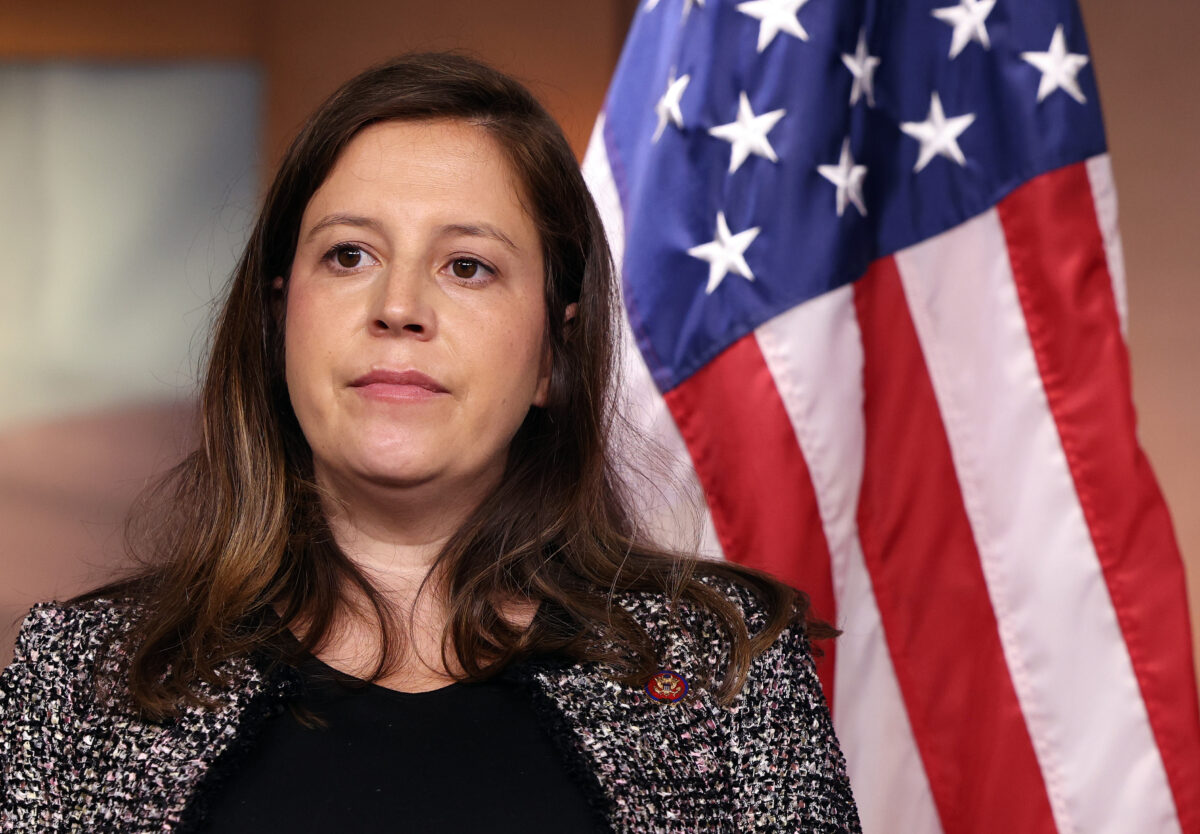American Officials Sound Alarm on China’s Purchases of US Farmland
Sid Miller just won his third term as the Texas agricultural commissioner in November. One of his campaign priorities was to prevent communist China from buying agricultural land and gaining access to the state’s infrastructure.“This is the stupidest thing we can do as a nation,” Miller told The Epoch Times, referring to what he intended to prevent. “Not only do we need to stop it here in Texas—I’m working with the state legislature—but we need federal oversight of this that needs to stop in every state.” The issue first came to the commissioner’s attention two years ago when a retired Chinese military officer’s wind farm plan in south Texas became public knowledge. The proposal would have given the owner access to the state’s electricity grid. For the Blue Hills Wind Farm project, Chinese billionaire Sun Guangxin bought 140,000 acres in Del Rio. This included several ranches within 80 miles of the Laughlin Air Force Base and within some of the base’s pilot training zones. Commissioner of Agriculture of Texas Sid Miller speaks during a Texas Republican Party election night rally in Austin, Texas, on Nov. 8, 2022. (Suzanne Cordeiro/AFP via Getty Images) Texas ranks number one in China’s agricultural land ownership, according to the state-by-state data shared by the Department of Agriculture (USDA)’s Farm Production and Conservation agency. As of Dec. 31, 2020, China owned 325,686 acres of U.S. agricultural land, according to the USDA data. While the acreage under Chinese ownership is slightly less than one percent of all foreign-held agricultural land, it represents an exponential increase from 13,720 acres in 2010. This rapid upward trend is alarming to Rep. Dan Newhouse (R-Wash.), a third-generation farmer. “You also have to couple the acreage with the fact that the CCP’s stated goal is to remake the world according to their benefit. The trend is for them to continue buying our assets and it has to stop before it becomes an even bigger problem,” the congressman previously told Farm Journal. Newhouse introduced a bill in May to prohibit foreign individuals or enterprises associated with the Chinese Communist Party (CCP) from buying agricultural real estate in the United States. Food Security as National Security Home to nearly 20 percent of the global population, China has only seven to nine percent of the world’s productive farmland, according to a May report (pdf) by the U.S.-China Economic and Security Review Commission (USCC), an influential congressional advisory body. Therefore, China has increased its acquisitions of foreign agricultural businesses and assets to address its need for food. The report also warned that “China may have undue leverage over U.S. supply chains” if such a trend continues. An example was the $4.7 billion purchase of Smithfield Foods, Inc., the largest pork producer in the United States. In September 2013, the Committee on Foreign Investment in the United States (CFIUS), a federal panel that reviews foreign acquisitions for national security risks, cleared the transaction, which was subsequently completed in the same year. As a part of the deal, the Chinese buyer WH Group (formerly Shuanghui Group) gained over 146,000 acres with hog farms and processing plants in North Carolina, Missouri, Utah, and Virginia. (L to R) Executive director and chairman of WH Group, Wan Long, Executive director and president of Smithfield, Larry Pope and Smithfield chief financial officer, Kenneth Sullivan attend a press conference in Hong Kong on April 14, 2014. (Philippe Lopez/AFP/Getty Images) Shuanghui’s chairman Wan Long was a member of the CCP’s National People’s Congress, the regime’s rubber-stamp legislature, for over 15 years, according to a 2013 Senate hearing testimony (pdf). PBS Newshour reported that the state-owned Bank of China approved a $4 billion loan in a single day for the Shuanghui acquisition. The USCC report analyzed the benefit Shuanghui enjoyed from the purchase: a tap into Smithfield’s global brand, a good record on food safety, and advanced hog genetic technology. These are types of access that Newhouse worries about. “The Chinese Communist Party and the Government of the People’s Republic of China are not our allies, and the U.S. cannot become dependent on an adversary for our domestic agriculture and food supply,” Newhouse told The Epoch Times in an email. “Food security is national security, and China’s efforts are a direct threat to both.” Threat Similar to the case of Shuanghui, the Chinese owner of the land in southern Texas, billionaire Sun Guangxin, a self-made businessman in the country’s far west Xinjiang region, is also closely aligned with the CCP. “Over the past 30 years, the Guanghui Group has flourished on the wave of the reform and opening up policy. We have been and will continue to be driven by the principle of keeping the Party in mind and obeying the Party’s commands,” states Sun’s company on its English website. The company als

Sid Miller just won his third term as the Texas agricultural commissioner in November. One of his campaign priorities was to prevent communist China from buying agricultural land and gaining access to the state’s infrastructure.
“This is the stupidest thing we can do as a nation,” Miller told The Epoch Times, referring to what he intended to prevent. “Not only do we need to stop it here in Texas—I’m working with the state legislature—but we need federal oversight of this that needs to stop in every state.”
The issue first came to the commissioner’s attention two years ago when a retired Chinese military officer’s wind farm plan in south Texas became public knowledge. The proposal would have given the owner access to the state’s electricity grid.
For the Blue Hills Wind Farm project, Chinese billionaire Sun Guangxin bought 140,000 acres in Del Rio. This included several ranches within 80 miles of the Laughlin Air Force Base and within some of the base’s pilot training zones.

Texas ranks number one in China’s agricultural land ownership, according to the state-by-state data shared by the Department of Agriculture (USDA)’s Farm Production and Conservation agency.
As of Dec. 31, 2020, China owned 325,686 acres of U.S. agricultural land, according to the USDA data. While the acreage under Chinese ownership is slightly less than one percent of all foreign-held agricultural land, it represents an exponential increase from 13,720 acres in 2010.
This rapid upward trend is alarming to Rep. Dan Newhouse (R-Wash.), a third-generation farmer.
“You also have to couple the acreage with the fact that the CCP’s stated goal is to remake the world according to their benefit. The trend is for them to continue buying our assets and it has to stop before it becomes an even bigger problem,” the congressman previously told Farm Journal.
Newhouse introduced a bill in May to prohibit foreign individuals or enterprises associated with the Chinese Communist Party (CCP) from buying agricultural real estate in the United States.
Food Security as National Security
Home to nearly 20 percent of the global population, China has only seven to nine percent of the world’s productive farmland, according to a May report (pdf) by the U.S.-China Economic and Security Review Commission (USCC), an influential congressional advisory body. Therefore, China has increased its acquisitions of foreign agricultural businesses and assets to address its need for food.
The report also warned that “China may have undue leverage over U.S. supply chains” if such a trend continues.
An example was the $4.7 billion purchase of Smithfield Foods, Inc., the largest pork producer in the United States. In September 2013, the Committee on Foreign Investment in the United States (CFIUS), a federal panel that reviews foreign acquisitions for national security risks, cleared the transaction, which was subsequently completed in the same year. As a part of the deal, the Chinese buyer WH Group (formerly Shuanghui Group) gained over 146,000 acres with hog farms and processing plants in North Carolina, Missouri, Utah, and Virginia.
 (L to R) Executive director and chairman of WH Group, Wan Long, Executive director and president of Smithfield, Larry Pope and Smithfield chief financial officer, Kenneth Sullivan attend a press conference in Hong Kong on April 14, 2014. (Philippe Lopez/AFP/Getty Images)
(L to R) Executive director and chairman of WH Group, Wan Long, Executive director and president of Smithfield, Larry Pope and Smithfield chief financial officer, Kenneth Sullivan attend a press conference in Hong Kong on April 14, 2014. (Philippe Lopez/AFP/Getty Images)
Shuanghui’s chairman Wan Long was a member of the CCP’s National People’s Congress, the regime’s rubber-stamp legislature, for over 15 years, according to a 2013 Senate hearing testimony (pdf). PBS Newshour reported that the state-owned Bank of China approved a $4 billion loan in a single day for the Shuanghui acquisition.
The USCC report analyzed the benefit Shuanghui enjoyed from the purchase: a tap into Smithfield’s global brand, a good record on food safety, and advanced hog genetic technology.
These are types of access that Newhouse worries about.
“The Chinese Communist Party and the Government of the People’s Republic of China are not our allies, and the U.S. cannot become dependent on an adversary for our domestic agriculture and food supply,” Newhouse told The Epoch Times in an email.
“Food security is national security, and China’s efforts are a direct threat to both.”
Threat
Similar to the case of Shuanghui, the Chinese owner of the land in southern Texas, billionaire Sun Guangxin, a self-made businessman in the country’s far west Xinjiang region, is also closely aligned with the CCP.
“Over the past 30 years, the Guanghui Group has flourished on the wave of the reform and opening up policy. We have been and will continue to be driven by the principle of keeping the Party in mind and obeying the Party’s commands,” states Sun’s company on its English website.
The company also vows to follow “Xi Jinping Thought,” the personal dogma of the Chinese communist leader, and seize opportunities of the CCP’s Belt and Road Initiative, a trillion-dollar overseas infrastructure investment program. On its Chinese-language website, Guanghui pledged to contribute to the “China dream”—Xi’s call for the regime to become the world’s dominant power by 2049.
Miller shared the same view on the CCP with Newhouse: “We’ve got to treat them for what they are: the enemy.”
He pointed out that Americans couldn’t buy land in China. Chinese citizens aren’t even allowed private ownership of land in the country; Instead, they can only purchase the right to use the land, which is under state or collective ownership. The ultimate decider is the CCP.
“We need to do what I call a little cowboy logic. We could pass simple legislation and say, ‘Look, if we can’t buy agricultural land in your country, you’re not allowed to buy land in our country,’” said Miller. “That would fix the problem. It’s just so simple.”
He is also alarmed that entities with ties to the CCP seem to purchase land close to military bases.

“They just bought some more land in North Dakota, again next to a military installation,” he added, referring to the 370 acres of farmland a Chinese company bought through its subsidiary, Fufeng USA, to build a corn milling plant in Grand Forks, North Dakota.
The land is within 15 miles of the Grand Forks Air Force base, which houses sensitive drone, satellite, and surveillance technology. On Dec. 12, CFIUS determined that the land sale for the Fufeng project was “not a ‘covered transaction’” under the committee’s jurisdiction.
Foreign-owned land near military installations was flagged as a potential risk to U.S. defense infrastructures in the USCC report. The report also highlighted the unusually high percentage of Chinese entities’ acquisition of property categorized as “other land,” defined by the USDA as having unclassified uses such as marshes, swamps, and bare rock.
As of Dec. 31, 2020, other-use land—land not used for crops, livestock, or timber—accounted for about 77 percent of total Chinese ownership. In comparison, Canada owned over 9 million acres of U.S. agricultural land, and 1 percent was for other use, and Germany had 5 percent of “other land” out of over 1 million acres of U.S. agricultural land it owned, according to the USDA data.
The USCC report noted the risk in such characterization.
“The possibility remains that land usage could change after a foreign buyer’s purchase is cleared and the investor has completed the initial reporting requirements. USDA requires foreign buyers to report on any changes to land use, but the lack of enforcement makes this an area ripe for neglect,” it stated.
Miller said that the CCP was “very stealthy” about their purchase of U.S. agricultural land. “They use our legal system and everything else at their disposal, possibly with an end game to harm us. This needs to stop,” he added.
Texas has more farmland than any other state, at 126 million acres, according to a February USDA report (pdf). And the Lone Star State leads the nation in agricultural exports of cotton and cattle, USDA data shows.
Miller is not against trade. He visited China in 2015 with a USDA delegation. The purpose was to encourage China to resume buying beef from the United States, he said. Miller doesn’t have a problem selling agricultural products to China; he just doesn’t want China to grow crops or raise livestock in the country.
Last year, he worked with state legislators Rep. Tan Parker (R-Flower Mound) and Sen. Donna Campbell (R-New Braunfels) on the Lone Star Infrastructure Protection Act (LIPA) that would ban Texas businesses and governments from doing business with foreign entities from China, Russia, North Korea, and Iran if these transactions would provide the enterprises with remote access to or control of critical infrastructure. The bill was passed, and the law became effective in June 2021.
The law appears to have thwarted Sun’s wind farm project. The Blue Hills Wind project under GH America Energy, owned by Sun, became officially inactive in August, according to the records of the Texas grid operator Electric Reliability Council of Texas. Also in August, GH America Energy canceled the Blue Star Solar project. But the firm’s Blue Valley Solar project run by local contractor Blue Valley Solar LLC is still ongoing, with an estimated completion date in December 2025.
In the coming year, Miller wants to work with the same partners to pass legislation to stop communist China from buying any agricultural land in Texas.
States Take Action
More states have taken action to address risks posed by the Chinese regime’s ownership of farmland and agricultural assets.
On Dec. 13, South Dakota Gov. Kristi Noem announced new proposed legislation to restrict farmland purchases by foreign countries, namely China. The state currently caps foreign ownership of agricultural land at 160 acres.
In addition, Noem and state legislators planned to create a new board, the Committee on Foreign Investment in the United States–South Dakota, to review proposed agricultural land purchases by foreign entities. The panel, consisting of three ex officio members and two experts in the agricultural industry and national security, would recommend either approving or denying land sales.
“We cannot allow the Chinese Communist Party to continue to buy up our nation’s food supply, so South Dakota will lead the charge on this vital national security issue,” Noem said in a statement.

Florida Gov. Ron DeSantis has also proposed legislative action to “prohibit purchases of agricultural land and land surrounding military bases by foreign countries of concern,” including China, his press secretary Bryan Griffin told The Epoch Times. The Sunshine State’s legislative session begins in March 2023. Florida’s new Commissioner of Agriculture Wilton Simpson in December expressed a similar interest.
In an August report, the conservative think tank Heritage Foundation urged more states to take action: “The fastest route to action is at the state level. States are closest to the problem. Therefore, state and local action on China is essential.”
Research indicates that more could be done.
According to the University of Arkansas’s National Agricultural Law Center (NALC), 28 states, including Texas and Florida, don’t have any restrictions on foreign ownership of agricultural land.
NALC research also shows that no U.S. state has an absolute ban on foreign ownership of agricultural land. About 14 states “specifically forbid or limit nonresident aliens, foreign businesses and corporations, and foreign governments from acquiring or owning an interest in agricultural land within their state,” and some states require foreign land ownership reporting, similar to the federal reporting law under the Agricultural Foreign Investment Disclosure Act (AFIDA), the NALC stated.
AFIDA stipulates that the penalty for failing to report foreign land ownership goes up to a quarter of the property’s market value. In reality, USDA often reduces the penalty amount significantly for fear of disincentivizing filing. For example, the fine for failing to report the land purchase associated with the Blue Hills Wind Farm project in Texas decreased from $21 million to $120,000.
Congressional Considerations
Miller said he would work with legislators at the federal level to escalate this matter of criticall national security, although he thought the state legislature could resolve the issue faster.
The Farm Bill, a package of legislation addressing agricultural and food policies passed roughly once every five years, could take up next year. Former President Donald Trump signed the previous one into law in 2018.
Meanwhile, quite a few federal lawmakers introduced bills this and last year tackling this issue. These bills addressed various aspects of economic and national security concerns, including recognizing agriculture as critical infrastructure, giving USDA regular representation on CFIUS, adding an intelligence unit within USDA, and banning Chinese entities from buying U.S. agricultural real estate.
Although all these bills will have to be reintroduced in the next Congress, the main sponsors are determined.

“The United States cannot allow malign ownership bids of American assets by China, Russia, Iran, and North Korea to undermine the efforts of our farmers, whose hard work feeds and fuels our communities,” Rep. Elise Stefanik (R-N.Y.), who introduced the Promoting Agriculture Safeguards and Security (PASS) Act in the summer, told The Epoch Times in an email.
“Especially as we witness the devastating impact of a supply chain crisis, the United States cannot cede any ownership of our food supply to those who do not share our security interests.”
The PASS Act bans China, Russia, Iran, and North Korea from buying U.S. agriculture companies, adds agriculture as part of the nation’s critical infrastructure, and makes the secretary of agriculture a standing CFIUS member.
The bill is one of the many attempts to give the USDA a seat on CFIUS and require agriculture to be considered a matter of national security. For example, a bipartisan Senate bill that proposed similar measures—“Food Security is National Security Act of 2017”—didn’t pass the banking committee in 2017.

Rep. Rick Crawford (R-Ark.), one of the original sponsors of the PASS Act, also introduced the Agricultural Intelligence Measures Act (AIM Act) in 2021. The AIM Act proposed a new Office of Intelligence in USDA to share information with the intelligence community.
Crawford called the “increase of Chinese purchases of U.S. farmland” a “great concern.”
“Our nation must take a more proactive approach at protecting our food supply and those who produce it,” the lawmaker said.







